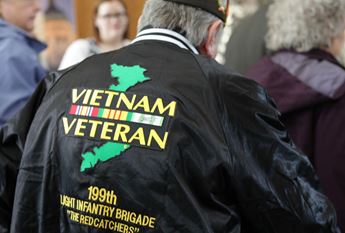

Big Idea: It's Time to Understand the History of Black Voting Rights
February 8, 2021
by Kim Warren, Associate Dean of Diversity, Equity and Inclusion, School of Social Welfare and Associate Professor of History, College of Liberal Arts and Sciences at the University of Kansas
The 15th Amendment to the US Constitution has been prohibiting the federal government and each state from denying citizens the right to vote for 150 years. In 1870, when the amendment was ratified, many considered this a huge victory for African Americans because a citizen’s “race, color, or previous condition of servitude” should not prevent them from voting. That was the idea.
The reality of the last in a sequence of three Reconstruction Amendments crafted after the Civil War was that the 15th Amendment neither applied to all African Americans nor did it ensure that millions of newly freed Black citizens could exercise their right to vote.
Why didn’t the 15th Amendment apply to all African Americans? The blame starts with the 14th Amendment.
At the end of the Civil War, the 13th Amendment abolished slavery in 1865. A few years later, the 14th Amendment established several rights for citizens, including equal protection and birthright American citizenship. The 14th Amendment also contained clauses excluding certain Native American tribes from these rights. It also inserted the word male into the Constitution, defining citizenship as a specifically gendered category. Therefore, when the 15th Amendment passed, allowing “citizens” to vote, the category of citizen had already been defined as categorically male, so the amendment became commonly known for granting universal male suffrage.
The passage of the 14th Amendment infuriated southern states that were forced to ratify the amendment in order to regain representation in Congress after the Civil War. Perhaps more outraged were the thousands of women who had been arguing for female suffrage for decades. Although many leaders of the woman suffrage movement had been staunch abolitionists, they felt betrayed when the 14th Amendment, quickly followed by the 15th, simultaneously disenfranchised women and provided the vote for Black men. Woman suffrage advocates viewed the amendments as putting the “woman’s cause…in deep water” and quickly saw that women of every race continued to be excluded from national voting. Most women in the suffrage movement of the 1800s would not live long enough to see women’s voting allowed by the 19th Amendment ratified in 1920.
Why didn’t the 15th Amendment ensure that African American men could vote? The basic answer is that amendments allow for rights, but do not ensure them.
Voting officials at the state and local levels knew that anyone with the right to vote had to register long before election day, so many African American men faced discrimination when attempting to register. They were told that they could register if they first paid some sum of money (poll tax); they were told that they could vote if they could prove that their grandfather could vote (poll tax); they were told that they could vote if they could read and interpret sections of the Constitution or other complicated forms (literacy test). Black voters reported that they had to walk miles to several polls in order to cast their vote at the right location. Many Black voters faced individual and mob violence when they tried to register or cast their ballots. Because of such discrimination and threat of violence, many African American men could not actually exercise their right to vote for generations. The Voting Rights Act of 1965 was passed in order to correct nearly a century of exclusion.
What did the 15th Amendment do for African Americans?
Even though thousands of Black men could not exercise their right to vote after the 15th Amendment passed and thousands of Black women experienced the same exclusion after the passage of the 19th, both amendments were vitally important to establishing the rights of people of color as citizens of the United States. The 15th Amendment ushered in a brief period of time when African American men ran for and won local and state offices. The amendment became the precedent when Black men and women have called for the United States to live up to its promise of democracy, equality, and freedom for all citizens.
About Dr. Kim Warren
Dr. Kim Warren is Associate Dean of Diversity, Equity and Inclusion, School of Social Welfare and Associate Professor of History, College of Liberal Arts and Sciences at the University of Kansas. Professor Warren's research interests include the history of gender and race in African American and Native American education, Kansas, and the United States. Her teaching interests include women's history, citizenship and American identity, race and gender relations, identity development in the African Diaspora, as well as social, civil rights, and reform movements.
The Art of Voting
Dr. Warren's Big Idea is part of The Art of Voting, a pop-up exhibition in six Kansas communities designed to inform Kansans about the history of electoral engagement and the right to vote, focusing primarily on when voting rights were extended to African Americans. This exhibit was developed by Humanities Kansas in partnership with the Watkins Museum of History, Lawrence, Kansas, and was funded by the "Why it Matters: Civic and Electoral Participation" initiative, administered by the Federation of State Humanities Councils and funded by the Andrew W. Mellon Foundation.
Watch Dr. Warren's Big Idea Interview
Sources
- Library of Congress, “15th Amendment to the U.S. Constitution: Primary Documents in American History,” https://guides.loc.gov/15th-amendment
- National Parks Service, “Series: Suffrage in America: The 15th and 19th Amendments”
- Martha S. Jones, “How the Daughters and Granddaughters of Former Slaves Secured Voting Rights for All,” Smithsonianmag.com, 8 March 2019
Spark a Conversation
- Learn more about at the history of American electoral engagement since the ratification of the 15th Amendment at The Art of Voting, a pop-up exhibition based on an exhibition created by the Watkins Museum of History and on display in six Kansas communities through February 28. Learn more.
- Join HK for a Big Idea interview with Dr. Kim Warren, conducted by Dr. Valerie Mendoza of Washburn Univeristy, on Zoom on Thursday, February 18 at 12:00 pm CST. Registration Required.




